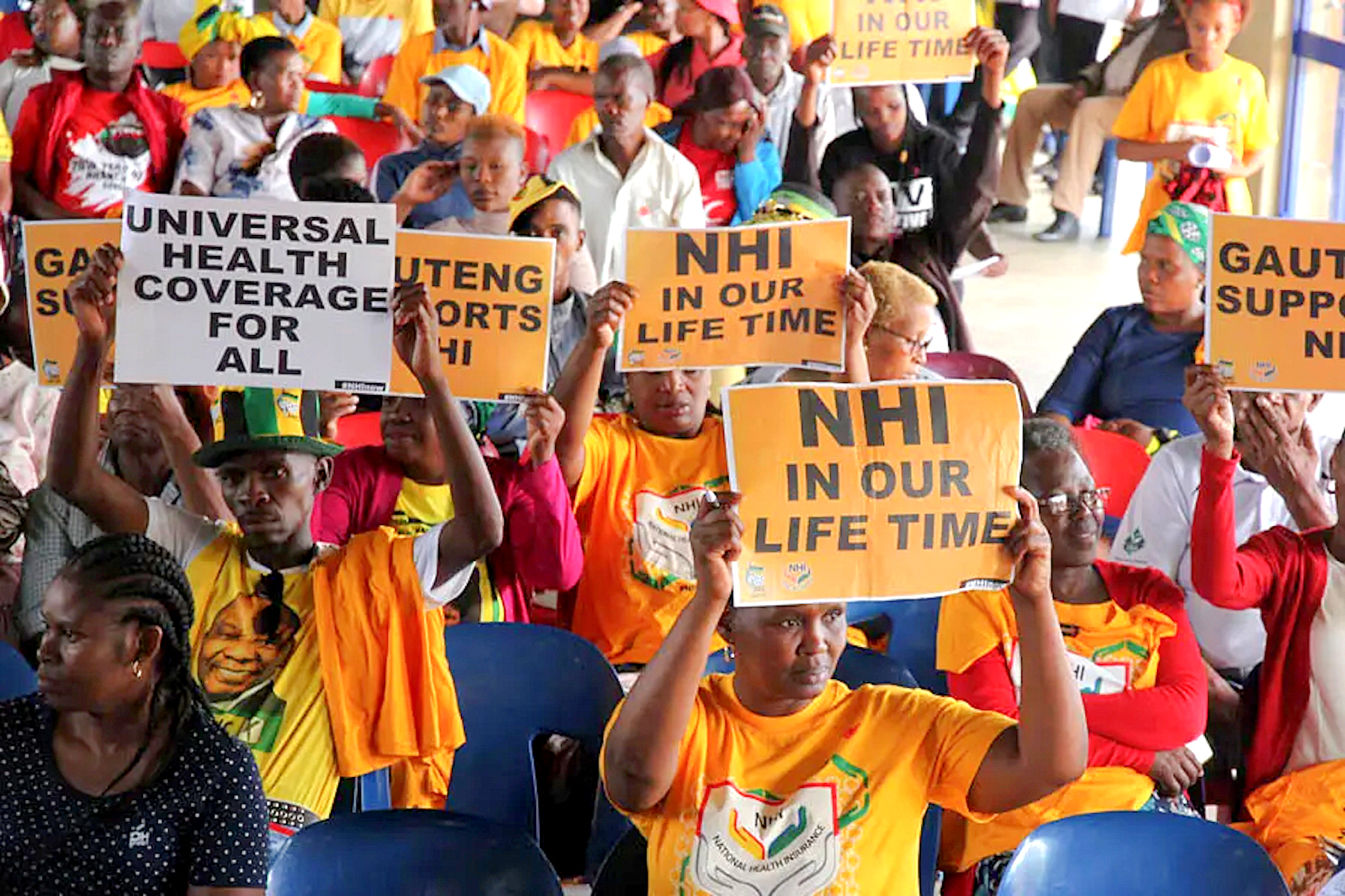Even before the extraordinary ambush by President Trump in the Oval Office, President Ramaphosa was aware that South Africa had come in for special treatment from the new US administration. In addition to threats of punitive import tariffs and massive cuts in aid (especially for HIV programmes) the US secretary of state announced on X that he would not attend the G20 Summit in Johannesburg in November. His reasoning is that South Africa is “doing very bad things” which includes using the G20 to promote “solidarity, equality and sustainability”.
The latter charge is indeed true, as evidenced by the G20 Health Working Group meeting in Durban in March, where the overarching theme was “Accelerating Health Equity, Solidarity and Universal Coverage”. However, these aren’t arbitrary slogans, they are principles and values the entire world (including the US) signed up to when all nations agreed to the Sustainable Development Goals in 2015.
In response, Ramaphosa has said South Africa will not be bullied and now he, like other leaders in countries targeted by Trump, such as Canada, China and Denmark, are looking for policy responses to demonstrate to their populations and their peers that they will not kow-tow to this American imperialism.
As the President considers his options, one opportunity he might consider is responding to this crisis by rapidly reforming South Africa’s US-style health system.
Courtesy of its apartheid past, South Africa, like the US, has a racially divided health system as a result of the mirrored economic inequity, dominated by private health insurance funding.
In both countries, roughly half of total health expenditure is channelled through private insurance schemes which are characterised by high premiums, inadequate coverage and extremely high administration costs. These systems are woefully inequitable as the poor and vulnerable are excluded.
Also in both countries, it is evident that insurance companies are incapable of constraining ballooning costs in the private health sector. Instead, they simply pass the burden on to households and employers in the form of skyrocketing premiums and unaffordable copayments. Not only does this reduce health coverage, it is also detrimental to the economy, as research conducted by Professor Angus Deaton, a Nobel Laureate in the US, shows that higher health insurance premiums are driving down wages of American workers. Inefficient health insurance schemes are also making US businesses less competitive and fuelling higher levels of inequality.
The warning signs for South Africa are clear: do nothing and the country will end up like the US, which spends an astonishing 18% of its GDP on its inefficient health system but also has some of the worst health outcomes (notably for maternal mortality) in the OECD.
Thankfully the rest of the world has learnt how to overcome these failings, by replacing private health financing (insurance and patient fees) with public financing, in the form of general taxation and compulsory social health insurance. Globally this is the proven way for countries to achieve universal health coverage, whereby everyone receives the health services they need without suffering financial hardship. Every wealthy country in the world has done this, with the exception of the US, where 10% of people still lack adequate health coverage. This situation is set to deteriorate further as Trump and some Republican governors seek to unwind the modest advances made by former president Barack Obama’s Affordable Care Act. Under this administration, America is clearly moving away from universal health coverage.
But the good news is that South Africa has a sound strategy to move towards it, through implementing the National Health Insurance (NHI) Act which was signed into law last May. In creating a single-payer system, funded primarily from general taxation, South Africa will compel healthy-wealthy members of society to cross-subsidise services for the sick and the poor. This is the foundation for successful universal health coverage reforms worldwide.
However, just like in the US, powerful vested interest groups who profit from the existing system, are trying to block South Africa’s NHI reforms, by mounting legal challenges and spreading misinformation about the supposed dangers of introducing a publicly financed health system. This includes the suggestion that middle-income countries like South Africa can’t afford a tax-financed NHI, when evidence from countries such as Thailand, Brazil, Mexico and Turkey shows this is patently untrue. Moreover, the salutary lesson from America’s failing and unpopular health system is that relying on private insurance is much more expensive than switching to a public system. Doing nothing and sleepwalking into a full-blown US health system will inhibit South Africa’s economic development.
Therefore if South Africa wishes to use the G20 Presidency to demonstrate its commitment to solidarity, equality and sustainability, what better way can it do this than fast-track its own universal health reforms in 2025? Not only will this bring huge health benefits to the people of South Africa, it will also stimulate economic growth, create jobs, increase real wages and reduce levels of health and income inequalities. Implementing this policy alone could therefore simultaneously accelerate progress towards multiple sustainable development goals. This would provide a lasting legacy for the people of South Africa and enable the country to demonstrate global leadership in increasing equity and solidarity despite the divisive policies adopted by other powers. DM
Robert Yates is Visiting Professor in Practice, London School of Economics and Political Science. Written in the author’s personal capacity.
Maverick Citizen
SA should ditch its woefully inequitable and expensive American health system




